Food and drink highlights of France
- Tipping - Don't tip - the 15% service charge is included in the bill under the word “Service Compris”. However, it is customary to leave an additional few euros, if the service was exceptional.
- Eating hours -
- Shopping hours - Stores and shopping centers are closed on Sundays. You can shop from Monday to Saturday from 9 am to 7 pm.
- Discount shops -
- Cuisine type - Today, French cooking is a mix of centuries-old peasant dishes( like ratatouille) and haute cuisine of French chefs. Culinary traditions remain rooted in eating what is fresh and seasonable. French cuisine has been recognized as a cultural heritage by the United Nations.
- Savoir Vivre - Etiquette during a meal includes the following rules: do not? keep your hands on the table, do not crunch loudly, do not slice the baguette with a knife( use hands instead).
- Main ingredients - 10 essential ingredients of French cuisine are olive oil, dijon mustard, Fleur de sel (natural sea salt), Crème fraîche (thick cream), truffles, herbes de provence, shallots, French bread, wine and French cheeses.
- Most popular alcohol - Perhaps the most famous French alcohol is champagne. This sparkling wine is produced only in the region called Champagne.The bubbles, which make this alcohol so special, come naturally.
- Important info - Separating dish ingredients or asking to serve a dish without some, may be treated as we do not enjoy the service. Do not have your phone on the table while eating or drinking.
- Warning - In a restaurant, you shouldn't: refill your own glass because that's the waiter's role, drink before everyone is served, share the bill, or wave to the waiter.
Did you find this information valuable?
Thank you for co-creating with us! 😊 Remember to give us feedback by pressing the thumbs up or down under every section.
The quality of content is essential for us. Please let us know what influenced your opinion.
Thank you!
Foods to try in France
- Soupe à l’oignonHot, aromatic onion soup served with delicious cheese croutons. It consists of broth, lots of butter, flour and, of course, onion.
- Boeuf BourguignonIt is a delicious, thick beef stew with mushrooms and red wine.
- CrepesFrench pancakes! Very large, paper thin, served both as sweet (for example with powdered sugar and strawberries) or savory This dish is especially popular in Brittany.
- Quiche LorraineA French version of fast food! It is a shortcrust pastry with ham, bacon, cheese, and eggplant.
- Croque monsieur and croque madameThese are toasts with ham or with an egg.
Did you find this information valuable?
Thank you for co-creating with us! 😊 Remember to give us feedback by pressing the thumbs up or down under every section.
The quality of content is essential for us. Please let us know what influenced your opinion.
Thank you!
Unusual facts about food in France
- In France, small breakfasts are eaten, and rather hearty lunches and dinners.
- It is said that France has one of the best cuisine in the world, which proves to own more than 600 Michelin star awards.
- French rather drink pints of beer than the half a liter mug.
- Prix Fixe is a type of menu consisting of a starter, main course, and dessert and often comes with fixed prices.
- French usually order a “pichet” of wine, which is a carafe, and it comes in different sizes such as 25 cl. (250 ml) or 50 cl. (500 ml).
Did you find this information valuable?
Thank you for co-creating with us! 😊 Remember to give us feedback by pressing the thumbs up or down under every section.
The quality of content is essential for us. Please let us know what influenced your opinion.
Thank you!
Place to stay in France
- Best booking sites -
- Seasonality - Traveling out of season (late spring and autumn), can ensure some nice weather and better room rates.
- Cost-effective - Budget accommodation can be found in all regions of France, from quaint guest houses in the countryside to city center hostels. Campsites are a cheap alternative to other types of holiday accommodation.
- Formalities - Your booking (by phone or for example by e-mail, ), room rate and receipt of deposit should be confirmed in writing, by the hotelier.
- Air conditioning -
- Parking - Most of the hotels offer an hour of free parking.
- Payments - Electronic payments upon booking are usually accepted, but by card on the spot. Booking in cash is unlikely to be possible. Check the hotel website.
- Local names - Gite' is a French word that has gained acceptance in English. You can find for example Gîte équestre', 'gîte d'étape';.
- Camp - There are campsites all over the country. They are often located near larger cities. Similarly to hotels, have a four-star system of evaluation.
- Important - Accommodation in France is not one of the cheapest.Without booking it in advance, it may be very pricey.
- Warning - You can pay your bill with cash. That's still done all the time. But if you have no credit card when you arrive, the hotel is likely to ask for a cash bond that is significantly higher than the daily room rate.
Did you find this information valuable?
Thank you for co-creating with us! 😊 Remember to give us feedback by pressing the thumbs up or down under every section.
The quality of content is essential for us. Please let us know what influenced your opinion.
Thank you!
Accommodation in France
- Chain hotels located at motorway exits and on the outskirts of major towns are good alternatives when you are looking for accomodation late at night. You can usually count on a decent and reliable standard there.
- Hostels and cheaper hotels may not have bathrooms in a room (they offer shared bathrooms at the end of the hall).
- It rarely happens that a room does not have a central heating system.
- In some hostels, regardless of the class (lower or higher), there are age restrictions, eg check-in is only possible for guests aged 18-55.
- Book a room in advance to save money (at least two days earlier).
Did you find this information valuable?
Thank you for co-creating with us! 😊 Remember to give us feedback by pressing the thumbs up or down under every section.
The quality of content is essential for us. Please let us know what influenced your opinion.
Thank you!
Getting around France
- Most popular - For getting around France, you can use local means of transport like train, bus, and tram systems.
- Cost-effective - Trains, the slower ones, are also the cheapest option to travel in France. If you have a Eurail pass, even TGV will be a little less expensive.
- Time-efficient - Trains are the fastest and most comfortable way to travel to distant locations and major cities.
- Traffic safety - Roads in France are almost always in good or excellent conditions. In mountainous areas, roads may be damaged by frost or landslides, but such dangers are always signposted.
Metro
- Metro can be found in cities such as Paris, Marseille, Lillie, Lyon, Rennese, Rouen and Toulouse.
- Metro does not run during the night, so check what time the last train leaves. The first one usually starts between 5:30 and 6:00 a.m.
Plane
- Strikes in France often concern the air carriers, so check if there are no limitations on flights.
Car
- Renting a car is cost-efficient only if you want to travel between smaller towns and not within one city.
- The prices for car rental are lower, if you rent it in advance (best to do it before arriving in France).
- You need to have a passport, credit card and driving license and be at least 21 years old to rent a car.
- Some car rental agencies require the driver to have a driving license for at least one year.
Train
- The France national railway is called SNCF - you can buy the tickets on their website: www.thetrainline.com/en/train-companies/sncf.
- One of the fastest trains globally is the TGV, but it is also very expensive compared to other train options.
- Booking the ticket in advance gives discounts and helps you save time.
- Seniors (at least 60 years old) and youths (below 26 years old) can purchase the tickets with discounts even up to 50%.
- Tickets need to be validated before entering the train platforms.
- Train carriers also go on strikes from time to time - check the official website to see if there are any problems with your trip.
Bicycle
- To rent a bike in Paris, you can use an online subscription for several days. Check www.velib-metropole.fr/en/offers#subscription for more information.
- When traveling in France by bike, you can follow the directions on the 'France Vélo Tourisme' website.
Bus
- They are generally slower than the trains, but they are significantly cheaper.
- Long-distance buses depart from the outskirts of the cities.
- The main bus carries are Flixbus, Eurolines and Ouibus.
- The night route of the city bus may be different from the one which rides during the day.
- They are generally slower than the trains, but on the other hand they are much cheaper.
Taxi
- Always take a taxi from the designated ranks because - they are always legal (licensed).
- Taxis are sometimes cheaper than Uber and they are allowed to use bus lanes to reach places faster.
- In Taxi G7, you can always pay with a credit card, but this does not necessarily apply to other taxi companies.
- It is a good style to tip the taxi driver.
Hitchhiking
- Hitchhiking in France is very safe.
- There are many friendly car and truck drivers.
- Usually you don't have to wait long for a ride.
Did you find this information valuable?
Thank you for co-creating with us! 😊 Remember to give us feedback by pressing the thumbs up or down under every section.
The quality of content is essential for us. Please let us know what influenced your opinion.
Thank you!
How to travel in France
- France has a greatly developed transport system, so it is easy to travel across the country.
- The French motorway network has about 10,000 kilometers. Tolls are collected for driving on motorways.
- Parking in major cities is rather expensive and time-consuming.
- Eurail France Pass allows traveling across the country without limits for a certain amount of days (minimum 3 days, up to 8 days).
- While using public transportation, keep the tickets and do not fold them, because they are sometimes required to leave the station.
Did you find this information valuable?
Thank you for co-creating with us! 😊 Remember to give us feedback by pressing the thumbs up or down under every section.
The quality of content is essential for us. Please let us know what influenced your opinion.
Thank you!
Best time to visit France
When to go
- The best time to visit France is late spring (mid-May to mid-June) and early autumn ( September). The summer (mid-June to August) is also a good time, but sometimes it can get hot.
- If you want to visit Brittany, Normandy or the Atlantic coastal areas, choose summer (June to August) for your trip. In the Mediterranean regions, the best time is spring and autumn, especially in May and June and the first half of September.
- If you want to go on a beach holiday on the Mediterranean coast, go to France in July or August.
Temperature
- Average annual temperatures decline to the north( for example: Nice on the Côte d'Azur at 15 °C and Lille on the northern border at 10 °C).
Rainfall
- Rainfall is brought on by westerly winds from the Atlantic. The highest annual rainfall is in the higher areas (mountain areas) and is over 1270 mm.
Spring
- Spring (March - May) is characterized by mild temperatures and sunshine, which compensates for frequent rainfall.
Fall
- Autumn in France is quite mild, but often clear days are disturbed by light rainfall.
Summer
- In the summer, from June to September, it may be hot, especially in the South, but it rarely gets above 35 °C.
Winter
- Winters in France are quite cold. It is often snowing and the temperature sometimes goes below 0°C.
Did you find this information valuable?
Thank you for co-creating with us! 😊 Remember to give us feedback by pressing the thumbs up or down under every section.
The quality of content is essential for us. Please let us know what influenced your opinion.
Thank you!
France weather Insights
- France is located in 2 main climate zones - temperate and Mediterranean.
- The temperate climate is located in the north and central region, and the Mediterranean climate is located on the south coast.
- It is warmer in the south than in the north of the country.
- In the north, there are hot summers and mild, wet winters.
- In the south, there are very hot, dry summers and wet winters.
Did you find this information valuable?
Thank you for co-creating with us! 😊 Remember to give us feedback by pressing the thumbs up or down under every section.
The quality of content is essential for us. Please let us know what influenced your opinion.
Thank you!
Savoir-Vivre in France
- Greetings - Shake hands with acquaintances or 'air kiss' ( la bise) those who are close to you when you are greeting them. The number of kisses depends on the region.
- Punctuality -
- Dress code - Wear casual, but on the other hand neat clothes - forget about sweatpants, leggins or flip flops.
- Temple entrance - If you're planning to visit some churches, remember to cover your knees and shoulders.
- Home invitation - If you are invited to a French house, you should always remember some rules - take a small gift, do not take your shoes off and help the host if it is possible.
- Etiquette - As a general rule, you should address others by using either the Madame or Monsieur form until prompted to speak by name. Remember to say 'hello' and 'goodbye' with the words 'bonjour' and 'au revoir'.
- Drones - We recommend using this map to easily check the applicable restrictions. If you are looking for more specific information take a look here.
Did you find this information valuable?
Thank you for co-creating with us! 😊 Remember to give us feedback by pressing the thumbs up or down under every section.
The quality of content is essential for us. Please let us know what influenced your opinion.
Thank you!
Things not to do in France
- Use the word 'Vous' instead of 'tu' while talking in French to other people, unless they are very close to you.
- Do not touch the products or food located in the area outside of the market stall. Indicate to the seller what you want.
- Do not ask others about their incomes, children, and family-related things, because those questions refer only to close friends and family.
- Do not take pictures of people shopping in stores or the markets.
- Avoid shouting or drawing attention to yourself in public because this is viewed as a lack of self-control and manners.
Did you find this information valuable?
Thank you for co-creating with us! 😊 Remember to give us feedback by pressing the thumbs up or down under every section.
The quality of content is essential for us. Please let us know what influenced your opinion.
Thank you!
Interesting facts about France
- Public restrooms are not free - they usually cost around 0,30 - 0,40 euros.
- Many French people do not speak English - the only way to communicate with them will be French.
- Movies in cinemas labeled as VOSTF have original dubbing.
- In France, cheques are still commonly used in everyday situations.
- Getting through formal procedures in official offices takes a lot of time as France's bureaucracy is a real inconvenience.
Did you find this information valuable?
Thank you for co-creating with us! 😊 Remember to give us feedback by pressing the thumbs up or down under every section.
The quality of content is essential for us. Please let us know what influenced your opinion.
Thank you!
Best souvenirs from France 💝
France is a dream destination for many tourists! No wonder that we want to keep the magic of French elegance and chic for a long time after returning from a trip or give our loved ones souvenirs from our trip to the country of wine and fashion. We have prepared for you a list of the best souvenirs from France - check it out!
🍺 Beverages
Cider 💲 💲 💲 💲
Not only France, but also the United Kingdom and Spain are the leading countries in terms of production and consumption of cider made from fermented apples.
📌 Region: Normandy, Brittany
🛒 Where to buy: liquor stores, supermarkets
💰 Price range: 4 - 10 EUR
💡 Pro tip: Avoid cheap bottles of cider for around 1-2 euro.
🎁 For whom: grandparents, parents, friends, spouse
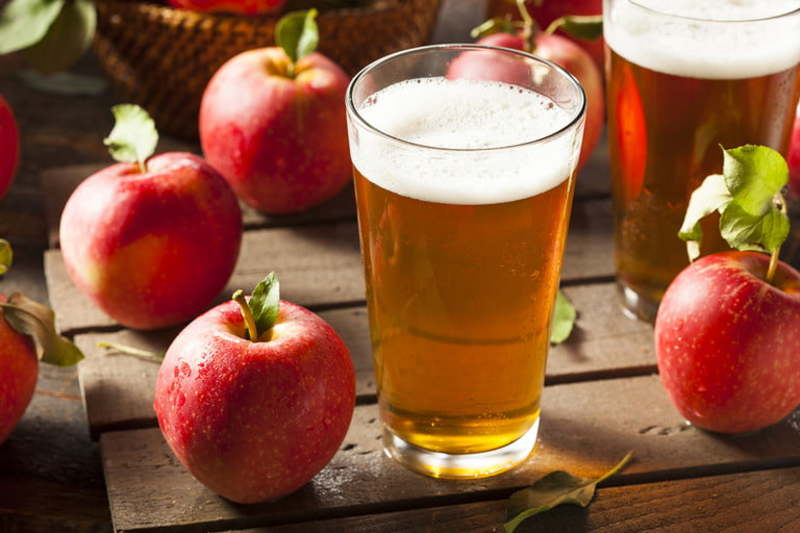
Kir Royal 💲 💲 💲 💲
Kir Royal is an alcoholic cocktail made from a combination of Creme de Cassis and white wine, usually champagne. Creme de Cassis is a liqueur based on black currant. Kir Royal is not bought in a bottle - to prepare this drink at home, you need to buy Creme de Cassis and champagne separately.
🛒 Where to buy: liquor stores
💰 Price range: 7 - 12 EUR
💡 Pro tip: Check the labels before buying Creme de Cassis, do not buy the ones with blackcurrant extract instead of common blackcurrants.
🎁 For whom: grandparents, parents, friends, spouse

Wine 💲 💲 💲 💲
French wines are called the best in the world - it is France that produces it most! Try Bordeaux or Merlot wines, they will surely taste it!
📌 Region: Bordeaux, Champagne
🛒 Where to buy: grocery stores, restaurants, wine shops
💰 Price range: 15 - 100 EUR
🎁 For whom: grandparents, parents, friends, spouse
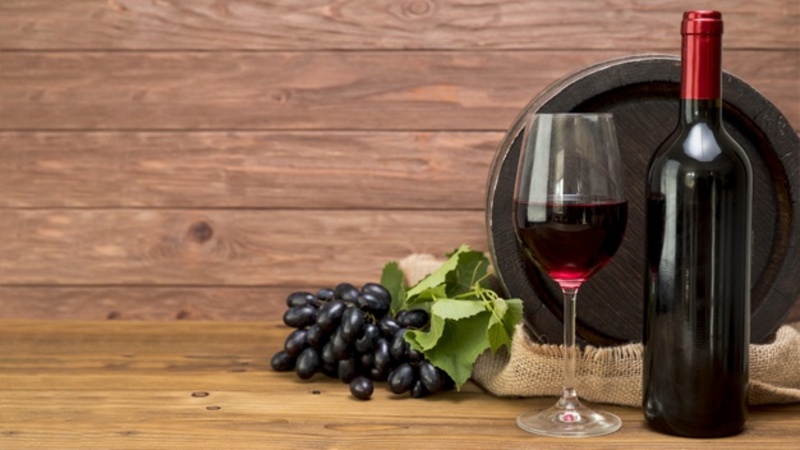
👚 Clothes
Béret 💲 💲 💲 💲
No cap is as characteristic as the French beret, which has become a source of many stereotypes. It is usually made of wool and has a tiny tip in the middle. Nowadays, it is a sign of style - both ladies and gentlemen can wear it.
📌 Region: Ile-de-France
🛒 Where to buy: clothing stores
💰 Price range: 60 - 200 EUR
💡 Pro tip: Watch out for the cheap chinese imitations.
🎁 For whom: friends, spouse
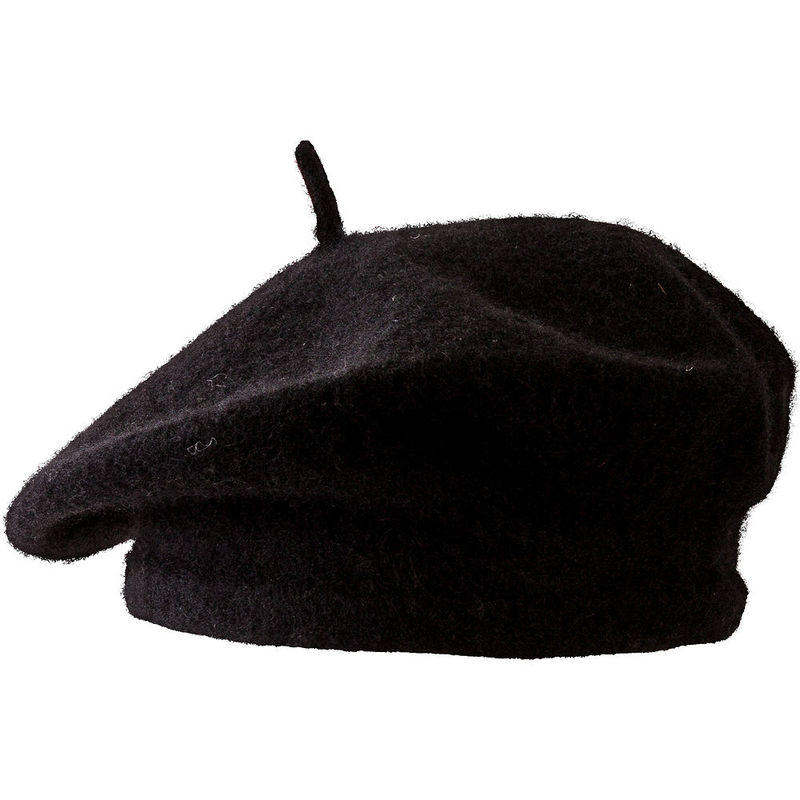
Garments 💲 💲 💲 💲
The capital of fashion - this is how often Paris is referred to as the home of many luxury clothing brands such as Louis Vuitton, Arpenteur or A.P.C. Brands such as Claudie Piero, Cleo Maison or Musier offer slightly more affordable prices for ordinary tourists.
📌 Region: Ile-de-France
🛒 Where to buy: clothing stores
💰 Price range: 50 - 500 EUR
🎁 For whom: spouse
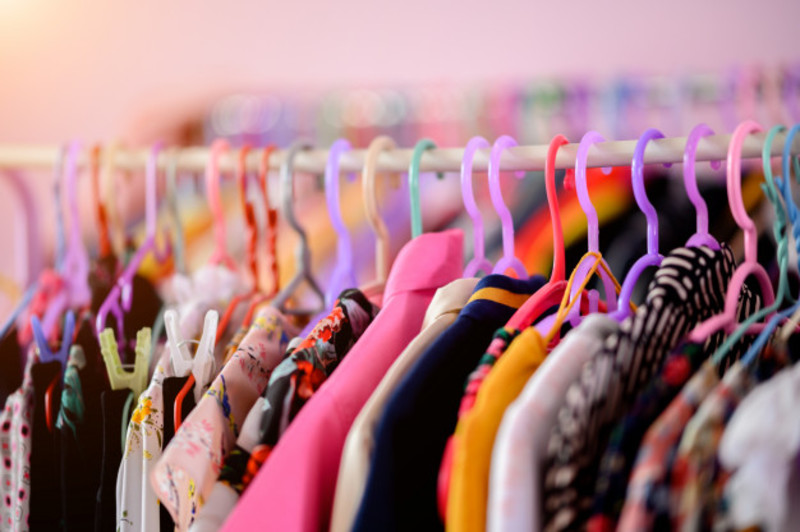
Marinière 💲 💲 💲 💲
The shirt was traditionally worn by French sailors. It is characterized by a pattern in blue and white stripes.
📌 Region: Ile-de-France
🛒 Where to buy: clothing stores
💰 Price range: 30 - 80 EUR
🎁 For whom: spouse
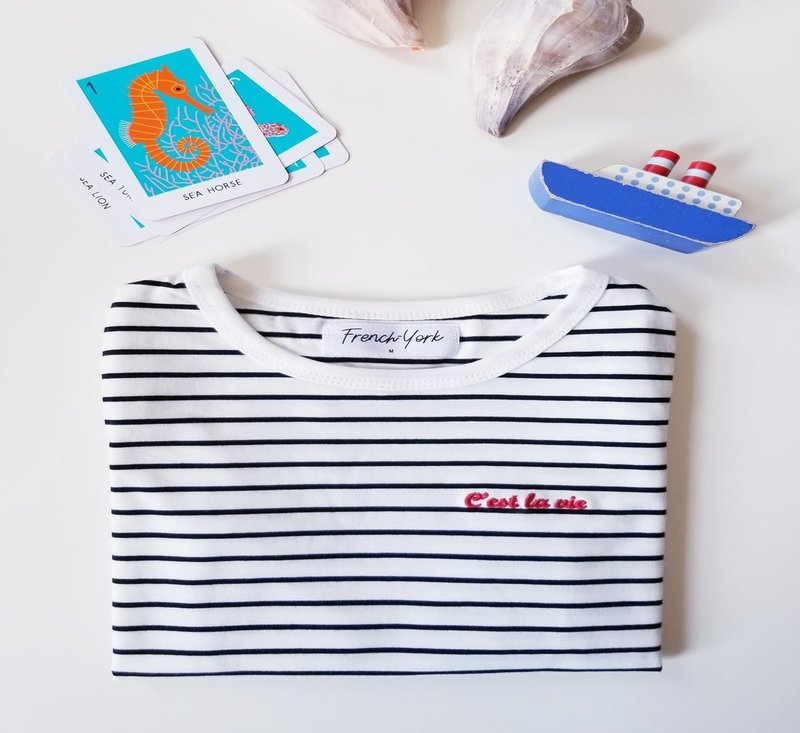
🛍 Collections
Asterix Comic Book 💲 💲 💲 💲
Not everyone knows that behind the series of popular comics about Asterix and Obelix is Frenchman Rene Goscinny. To this day countless comics, fairy tales and films about the adventures of the brave Gauls have been published.
📌 Region: Ile-de-France
🛒 Where to buy: dedicated shops, libraries
💰 Price range: 5 - 30 EUR
🎁 For whom: friends, kids
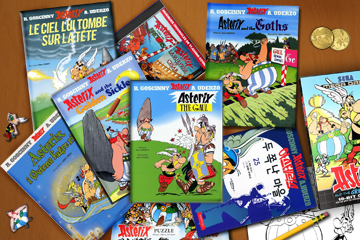
Pétanque boules set 💲 💲 💲 💲
Bule is the national sport of the French! The set will remind you about your journey. Who knows, maybe it will turn into your new hobby?
📌 Region: Provence
🛒 Where to buy: dedicated shops, workshops
💰 Price range: 50 - 80 EUR
💡 Pro tip: Make sure have enough space in your baggage to pack this set.
🎁 For whom: parents, friends, spouse
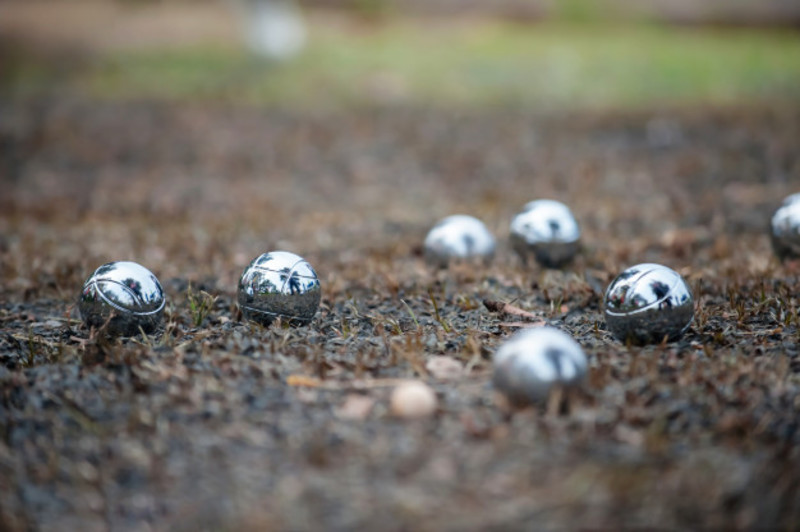
💄 Cosmetics
Perfumes 💲 💲 💲 💲
The most appreciated and recognizable French perfume brands are Channel, Yves, Dior and Chloe.
📌 Region: Ile-de-France
🛒 Where to buy: drugstores, perfumeries
💰 Price range: 40 - 150 EUR
🎁 For whom: spouse
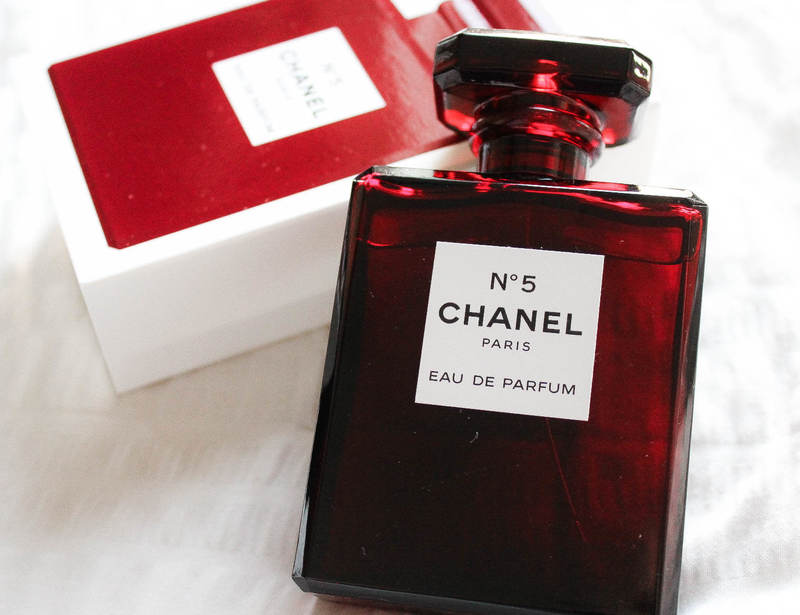
Soap 💲 💲 💲 💲
French soaps can be found all over the country, but the ones worth paying special attention to are soaps from the Provence region. Handmade from natural oils, they are great skin care products!
📌 Region: Provence
🛒 Where to buy: supermarkets
💰 Price range: 2 - 4 EUR
🎁 For whom: grandparents, parents, spouse
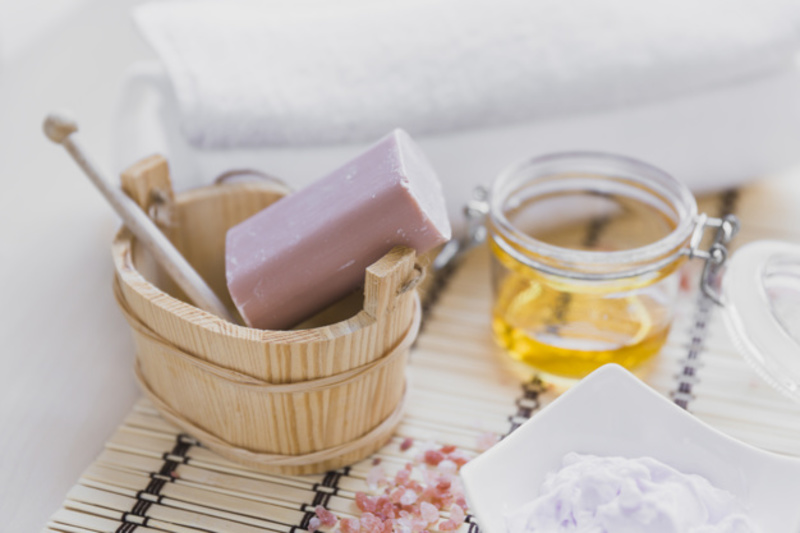
🥗 Food
Cheese 💲 💲 💲 💲
France has a huge selection of cheeses - more than 300 kinds, each with a different taste. They are made from cow's, sheep's and goat's milk. There are 3 main groups of cheeses - mild, mouldy and pressed. Cheeses such as Brie, Camembert, Comte, Roquefort, Munster or Gaperon are on the list of obligatory cheeses to taste!
📌 Region: Normandy, Comte, Ile-de-France, Auvergne, Burgundy
🛒 Where to buy: grocery stores, cheese shops
💰 Price range: 2 - 50 EUR
💡 Pro tip: Buy it just before departuring home in order to keep it fresh. Read articles about french cheese because the variety is huge.
🎁 For whom: grandparents, parents, friends, spouse
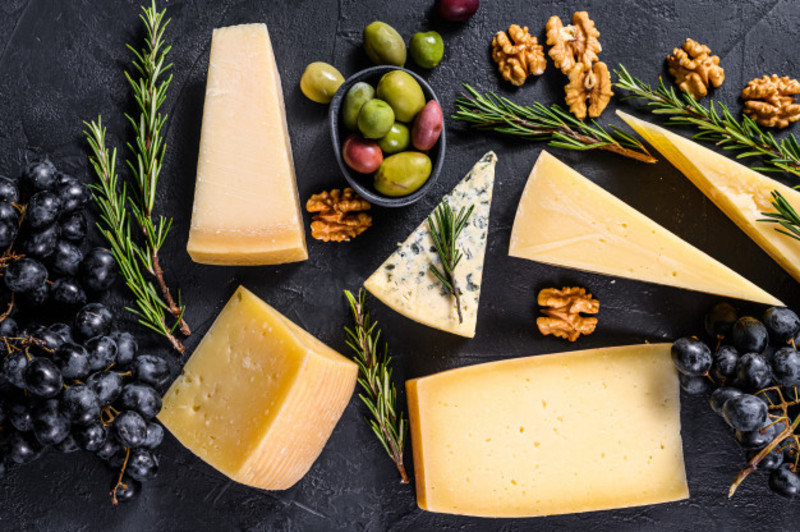
Fois Gras 💲 💲 💲 💲
Food that tastes strange to some, and others love it. Made from duck liver, foie gras you can eat is on bread, cracker or just straight from the pack! Foie gras is especially popular at Christmas time!
🛒 Where to buy: grocery stores, food stalls, supermarkets
💰 Price range: 5 - 20 EUR
🎁 For whom: grandparents, parents, friends
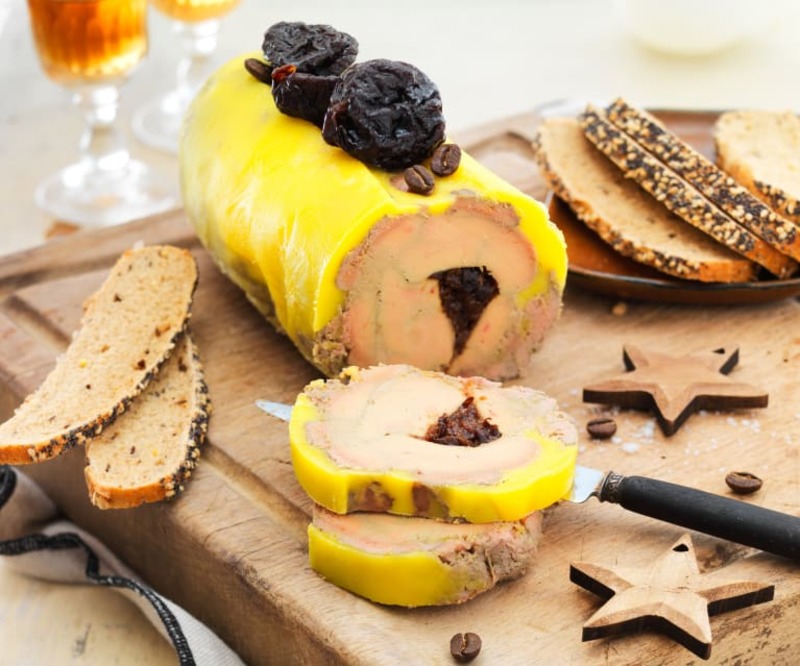
Lavender honey 💲 💲 💲 💲
Honey that is made with the addition of regional lavender can be found at food stands. Apart from lavender honey, you can also try thyme honey, another local delicacy.
📌 Region: Provence
🛒 Where to buy: food stalls, markets, grocery stores
💰 Price range: 7 - 10 EUR
🎁 For whom: grandparents, parents, friends, spouse
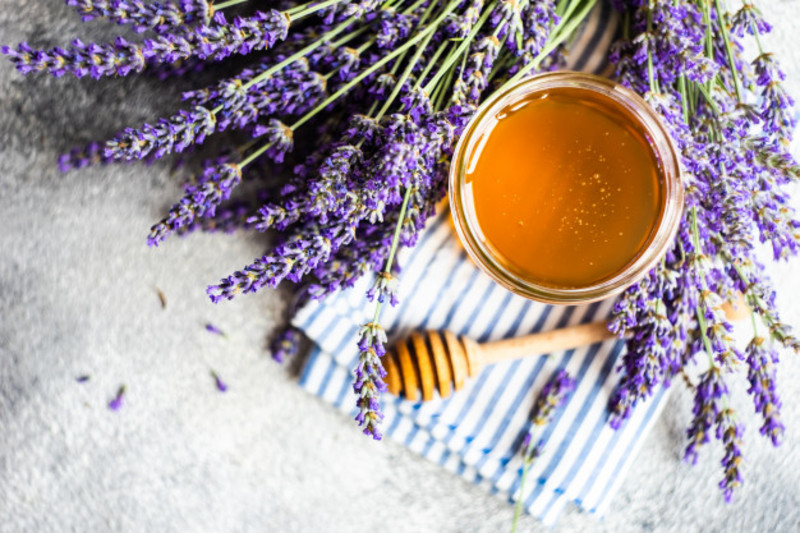
Macarons 💲 💲 💲 💲
Macarons are a French dessert that looks like a colorful mini burger or sandwich. Macarons are made from egg white, sugar and almond milk. Finally, they are colored with special colors. You can buy them separately or in special boxes.
📌 Region: Ile-de-France
🛒 Where to buy: dedicated shops, confectioneries
💰 Price range: 2 - 20 EUR
🎁 For whom: grandparents, parents, friends, spouse, kids
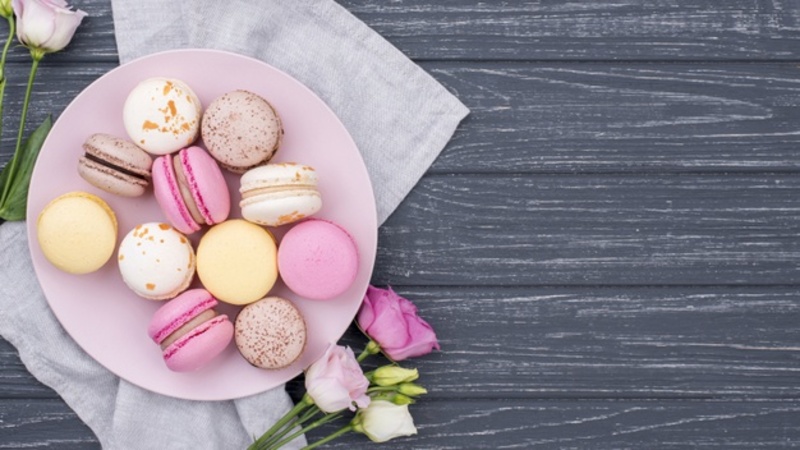
Mustard 💲 💲 💲 💲
A bottle or jar of French mustard can be a good idea for a food souvenir with a longer shelf life. A wide selection of mustards can be found in every local supermarket. One of the more common is Dijon mustard.
📌 Region: Burgundy
🛒 Where to buy: grocery stores, supermarkets
💰 Price range: 1 - 3 EUR
🎁 For whom: grandparents, parents, friends
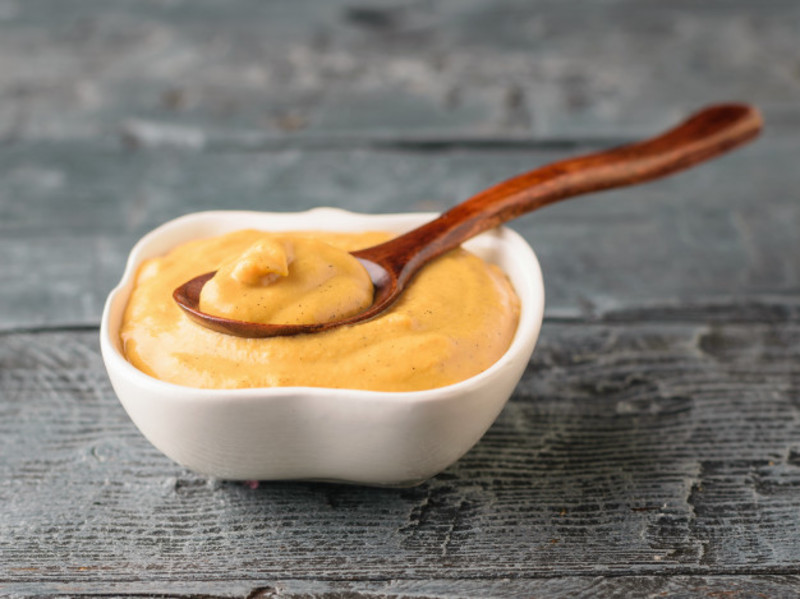
Salt 💲 💲 💲 💲
The most famous salt from France is the so-called "Fleur de Sel" and "Sel de Guerande". Both are unique for their unique taste and quality!
🛒 Where to buy: grocery stores
💰 Price range: 5 - 10 EUR
🎁 For whom: grandparents, parents
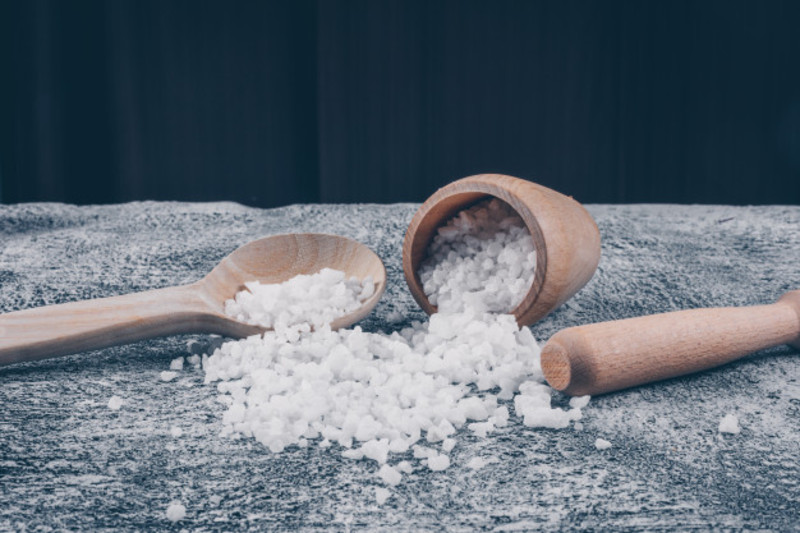
🖖 Handmade
Plush stork 💲 💲 💲 💲
Storks are majestic birds, very common in the Alsace region where they can be seen in summer. Local residents claim that storks bring luck and success, so it is worth considering buying a souvenir, which may have a similar effect.
📌 Region: Alsace
🛒 Where to buy: gift shops
💰 Price range: 5 - 15 EUR
🎁 For whom: friends, spouse, kids
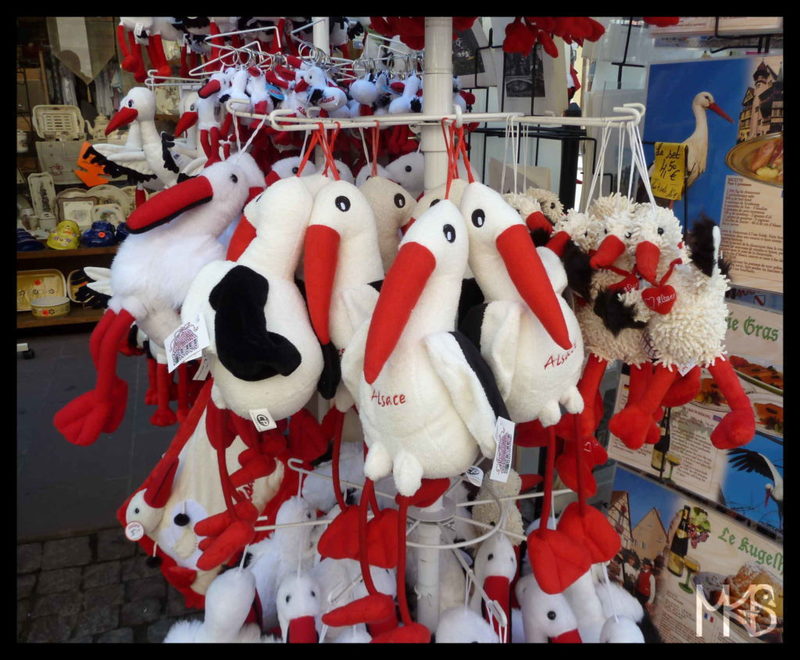
🏡 Home Decor
Ceramics 💲 💲 💲 💲
Plates and dishes are the most popular French ceramic products. They can be easily found all over the country, but the most popular ones can be found in the Provence region.
📌 Region: Provence
🛒 Where to buy: dedicated shops
💰 Price range: 50 - 100 EUR
🎁 For whom: grandparents, parents, spouse
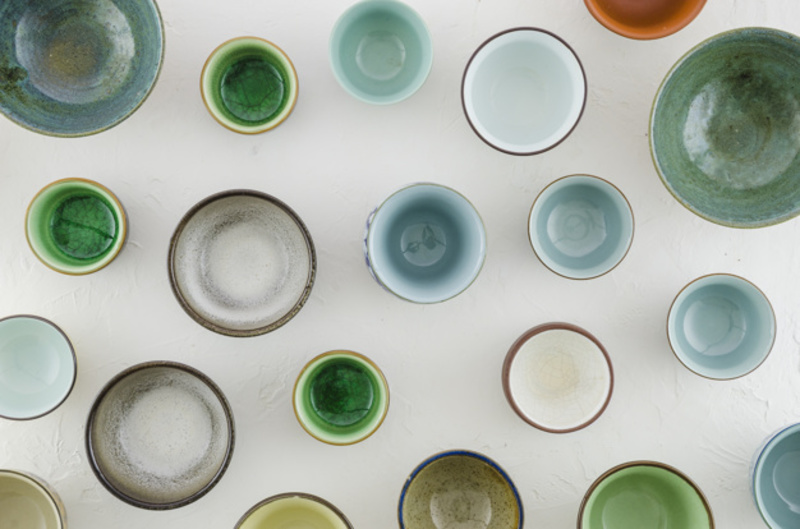
Eiffel tower figure 💲 💲 💲 💲
It may be an obvious souvenir, but it is worth thinking about buying this miniature version of one of the most recognizable monuments in the world. The figurine is usually made of metal in the color brown.
📌 Region: Ile-de-France
🛒 Where to buy: gift shops
💰 Price range: 25 - 40 EUR
🎁 For whom: grandparents, parents, friends, spouse
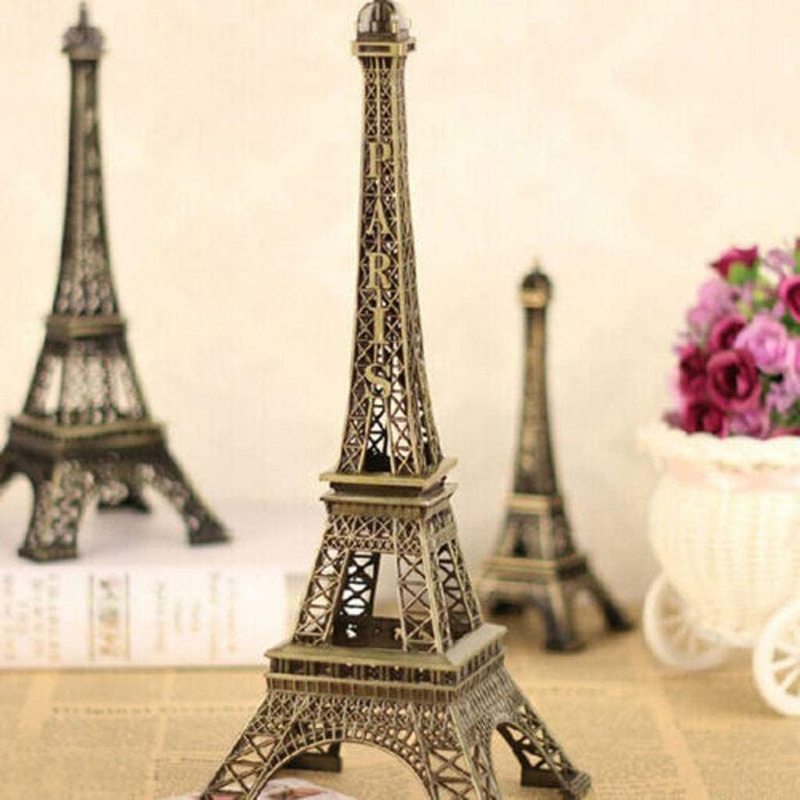
Linen 💲 💲 💲 💲
If you are looking for high quality decorations for your home, flax from Nice will be a hit! In Nice you will find such products as tablecloths, bedding and towels.
📌 Region: Provence
🛒 Where to buy: dedicated shops
💰 Price range: 8 - 100 EUR
🎁 For whom: grandparents, parents, spouse
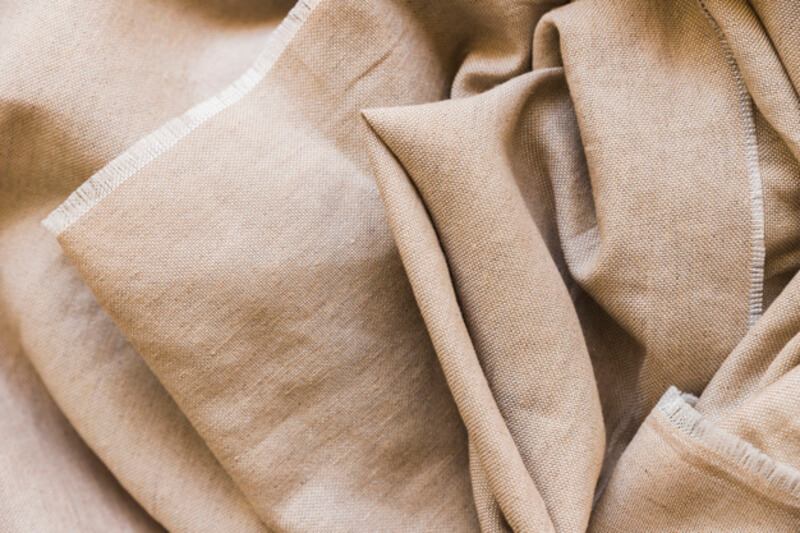
 France - Souvenirs
France - Souvenirs
Macaroons, wine or a beret - whatever souvenir you choose, with this guide, you'll be sure to choose the best gift for your budget!
Did you find this information valuable?
Thank you for co-creating with us! 😊 Remember to give us feedback by pressing the thumbs up or down under every section.
The quality of content is essential for us. Please let us know what influenced your opinion.
Thank you!
France packing list 💡
- Camera and camcorder - Necessary elements to capture wonderful monuments, beautiful landscapes.
- Sunglasses and cream with a UV filter - It can get hot in the south of France, the region boasts 300 sunny days a year.
- Headgear - Necessary to protect against heat stroke.
- Shoes - Forget about high heels, uncomfortable sandals and pool flip-flops. Light, good quality sneakers will be perfect for your French trip. You can also take comfortable sandals for the evening.
- Comfortable light clothes - Take sport clothes with you, if you plan a lot of hiking in Cevennes or national parks.
Did you find this information valuable?
Thank you for co-creating with us! 😊 Remember to give us feedback by pressing the thumbs up or down under every section.
The quality of content is essential for us. Please let us know what influenced your opinion.
Thank you!
Get a personalized packing list before travel to France 🧳
Health information
Health risks and required vaccinations
Packing lists
Personalized item list to pack matching your destination
Weather insights
Packing list adjusted to local weather
To-do lists
Everything you need to do before leaving home
Weight limits
Never pay excess baggage fees again
Local prices
Average cost of food, tickets and accommodation
Things to do in France ⭐
- Most popular sports: 🚴 Cycling, 🤿 Scuba diving, 🥾 Hiking
- Most popular activities: 🏖️ Sunbathing, 🥽 Snorkeling, 🍷 Wine tasting
- Must see places: 🗼Eiffel Tower, 🏝 Menton, Antibes, Cannes, 🏰 Palace of Versailles
Top attraction in France 📸
Tourist information about France
| Country | France |
| Capital | Paris |
| Currency | European euro |
| Language | French |
| Timezone | GMT+1 |
| English speaking | Widely spoken (basic) |
| LGBT tolerance | Very high |
| Gender ratio (overall) | 52% | 48% |
| Population | 65.3 mln |
| Visitors per year | 89.4 mln |
Did you find this information valuable?
Thank you for co-creating with us! 😊 Remember to give us feedback by pressing the thumbs up or down under every section.
The quality of content is essential for us. Please let us know what influenced your opinion.
Thank you!
Useful information about France
| Card payments | |
| ATM Availability | Widely available |
| Suggested ATM takeout | 100 EUR |
| Drinking in public | |
| Tap water | |
| Internet speed (avg.) | 50 Mbps |
| Socket type |
|
| Best taxi app | |
| Public toilets | Popular & Paid |
| Top mobile providers | Orange, Bouygues Telecom, SFR, Free Mobile |
| Best internal air carrier | Air France |
Did you find this information valuable?
Thank you for co-creating with us! 😊 Remember to give us feedback by pressing the thumbs up or down under every section.
The quality of content is essential for us. Please let us know what influenced your opinion.
Thank you!
Cost of living in France
| Meal, Inexpensive Restaurant |
13 EUR
15.33 USD
11.37 GBP
54.89 PLN
|
| Meal for 2 People, Mid-range Restaurant |
50 EUR
58.94 USD
43.73 GBP
211.12 PLN
|
| Domestic Beer (0.5 liter draught) |
6 EUR
7.07 USD
5.25 GBP
25.33 PLN
|
| Gasoline (1 liter) |
1.49 EUR
1.76 USD
1.3 GBP
6.29 PLN
|
| One-way ticket (public transport) |
1.7 EUR
2 USD
1.49 GBP
7.18 PLN
|
Did you find this information valuable?
Thank you for co-creating with us! 😊 Remember to give us feedback by pressing the thumbs up or down under every section.
The quality of content is essential for us. Please let us know what influenced your opinion.
Thank you!
Quality of life in France
| Quality of life | High |
| Safety Index | Moderate |
| Healthcare likability | Very high |
| Climate likability | Very high |
| Costs of living | Moderate |
| Level of pollution | Moderate |
Did you find this information valuable?
Thank you for co-creating with us! 😊 Remember to give us feedback by pressing the thumbs up or down under every section.
The quality of content is essential for us. Please let us know what influenced your opinion.
Thank you!
Important numbers
| General emergency number (mobile phone) | 112 |
| Fire | 18 |
| Police | 17 |
| Ambulance | 15 |
Did you find this information valuable?
Thank you for co-creating with us! 😊 Remember to give us feedback by pressing the thumbs up or down under every section.
The quality of content is essential for us. Please let us know what influenced your opinion.
Thank you!

